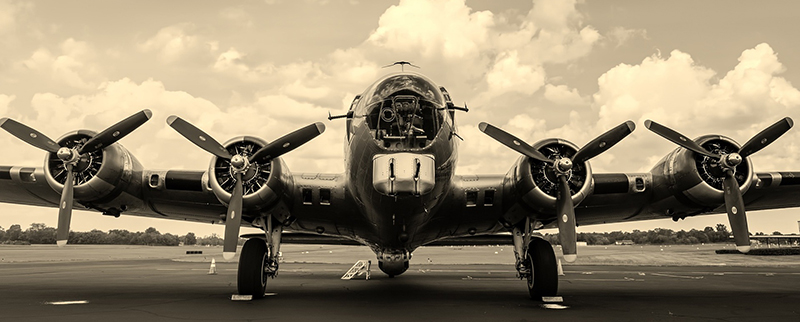FEBRUARY 2023 SPOTLIGHT: GARY BREEZEEL

 Each month we spotlight one of our members. This time around, we feature a story from Gary Breezeel. This is what Gary says about it…
Each month we spotlight one of our members. This time around, we feature a story from Gary Breezeel. This is what Gary says about it…
“What if the United States had not ignored numerous red flags in 1940-41 indicating that the Japanese would launch a surprise attack against U.S. Naval vessels in the Hawaiian Islands…”
This story won 1st Place in The Rest is History Contest, at the 2017 White County Creative Writers Conference.
SURPRISE ATTACK!
Pearl Harbor, 4 December 1941 1543 hours
“Jacoby! Get in here!”
Lieutenant Reginald Jacoby dropped the daily report on his desk and rushed into Commander Mulligan’s office. He snapped to attention in front of his superior’s desk. “Sir?”
The brawny senior officer’s face glowed red from his graying hair to the always-crisp collar. A sheen of sweat glistened in the light from the window. What had the skipper riled up? Had Reggie messed up somehow?
With jerky movements, the commander held up a folder, eyes alight. “This is it, Jacoby.”
“Sir, what do you mean?” Reggie’s breath caught. He must have made a serious error.
“We’ve received reports that the Japanese plan some sort of sneak attack. Intelligence suggests Pearl Harbor as the target. Oh, at ease, Lieutenant. Sorry about that.”
Reggie moved to parade rest. Gooseflesh covered his arms.
“Yesterday, radiomen from a commercial vessel reported that they intercepted and recorded coded Japanese radio transmissions in the North Pacific. Radio direction finding fixed an approximate location two hundred miles northwest of Honolulu.”
A hundred butterflies took flight in Reggie’s stomach. “Sir, we need to make preparations, ASAP. The attack could come at any time!”
A smile deepened the crow’s feet at the corners of Mulligan’s eyes. “We have a plan, son. But it all depends on you.”
Reggie leaned forward and met the commander’s gaze. “I’m ready, sir. To do whatever I can.” His heart pounded. What would they ask of him? He prayed he’d live up to his bold words.
“Hold your fire, Lieutenant. Officials at the highest level took care to give little credence to the threat. In public. But behind the scenes, our forces have taken steps to lure the Japanese into a trap.” He pointed to Reggie’s chest. “This is beyond Top Secret.”
“Certainly, sir”
Mulligan’s hand clenched into a fist. “You know all our aircraft carriers have left port on various missions?”
“Yes, sir. My friend, Ensign Monroe, is aboard the Arizona.”
“The missions were a ruse. Those vessels now maintain radio silence in positions away from shipping lanes, north and east of the islands.”
Reggie sucked in a quick breath. “They’re lying in wait?”
“That’s right. Within the hour, they will receive coded instructions via radio to move into position based on this report.” Mulligan tapped the folder, which he’d dropped on his desk. “Now, for your part in all this. I’m confident that you’re the man for the job.”
“Thank you, sir.” Reggie’s pulse kicked into high gear. “I’ll do my best to live up to your expectations.”
The commander’s gaze bored into Reggie’s eyes. “You have two hours to change into civvies and get on board the Marlin, a tuna boat docked at Ewa Beach. You’ll serve as a spotter. You’re well acquainted with the silhouettes of Japanese naval aircraft, are you not?”
“Yes, sir. I’ve studied them at length.”
“The crew is made up of actual fishermen. They will fish as usual, except they shall do so at coordinates you give them.” Mulligan extended a sealed envelope. “Here are your detailed orders. Do not open them until you’re at sea. The captain will follow your directions without question. Have him cruise near the stated coordinates. Use the boat’s radio and regular frequency to make your coded report in accordance with your written instructions. Any questions?”
“No, sir.” Reggie pressed his lips into a firm line.
“Very well. You’re dismissed.”
“Aye, aye, sir.” With a forced smile, Reggie snapped to attention, pivoted, and strode toward the door.
“Just a moment.”
Reggie did an about-face.
“You might need these.” Mulligan bent, opened his bottom drawer, and pulled out an oversized pair of binoculars.
“Right.” Reggie stepped forward and took them from Mulligan’s hand. “Thank you, sir.”
“Good luck, Lieutenant.” He extended his hand. “A great deal depends on the success of your mission.”
7 December 1941, 0637 hours, 150 miles NNW of Honolulu
As he’d done during the daylight hours of the two previous days, Reggie stood near the bow of the Marlin, gaze focused on the sky, and rotated 360 degrees at a slow, steady speed. He completed the revolution and, then, snapped his head to the left. What was that dark blur at ten o’clock? He raised the binoculars to his eyes and scanned the sky until he focused on the objects he sought. Just as he suspected. Mitsubishi A6Ms, more than a hundred of them—he held his position for a moment—as best he could tell, headed due south.
He lowered the glasses and raced to the bridge. “Captain, I need your radio.”
“I’ll call ahead. The radioman on duty will give you access as soon as you can get there.”
“But, first—” Reggie removed the binoculars from around his neck and handed them to the captain. “Ten o’clock. What do you see?”
The captain raised the glasses. “Good Lord! Is that what I think it is?”
“I’m afraid so. What’s your take on location?”
“Eight miles off the port bow.”
“I concur.” Reggie raced toward the radio room, composing the message in his head as he ran.
When he stepped through the hatch into the room, the radioman smiled at him. “I’m Miller. The Skipper called and said to give you access to the radio. What do you need from me?”
Reggie swept his hand in the direction of the radio equipment. “Just make sure this thing works. I have vital information to report.”
“Sure thing.” Miller threw a couple of switches and spoke into a microphone. “Honolulu, this is the fishing boat Marlin. Come in, Honolulu.”
“This is Honolulu. Go ahead, Marlin.”
The guy reported the vessel’s current geographic coordinates and handed the mic to Reggie, who held it to his mouth and cleared his throat. “This is the daily fishing report for the Marlin. We caught more than a hundred tuna. We plan to relocate eight miles west today, then turn south tomorrow. Over.”
“Message received. Honolulu out.”
“Marlin out.”
Reggie handed the mic back to Miller. “Thanks.”
The radioman raised his brows and scratched his temple. “What was all that about?”
After a deep breath, Reggie met the man’s gaze. “I just reported in excess of a hundred Japanese fighter planes off the port bow headed south.”
Miller’s eyes grew as wide as signal lamps. “You’re kidding?”
“No. It’s for real.” Reggie placed a hand on the man’s shoulder. “Don’t worry. We’re ready for them.”
Pearl Harbor, 7 December 1941, 1324 hours
Back in uniform, Reggie jumped out of his jeep and sprinted into headquarters, bound for Commander Mulligan’s office. He slowed to a fast walk once inside the building but skidded to a stop when he encountered his superior in the hallway. “Sir, how did it go?”
He slapped Reggie on the back. “Better than expected. Well done, my boy, well done. Your report enabled two of our carriers to get planes in the air. They intercepted the Japanese en route. Our fighters stopped one-third of the attack force and slowed the rest. Their success coupled with your early warning gave us time to get all our ships out of port and dispersed. We lost one battleship and another sustained heavy damage. But between their guns, antiaircraft batteries, and Army Air Corps fighter planes from Hickam Field, the Japs lost another twenty planes.”
Reggie slumped against the wall and glanced skyward. “Thank God, we anticipated the attack.”
Mulligan nodded. “Quite true. Otherwise, they might have destroyed almost the entire Pacific Fleet. But I saved the best news for last. We sent the California north two days ago. With the position data you provided, her new radar detection system identified the precise location of the enemy task force. The remaining carriers launched an attack while the Jap planes were away. Together with the California’s big guns, our planes sank one carrier, crippled the other, and dealt heavy casualties to other vessels in the convoy. When the Jap aircraft returned, they had no place to land.”
Reggie stood erect, shoulders back. “Thank you, sir, for the opportunity to participate in this mission.”
“You earned it. I placed the full report of damage inflicted on the enemy on your desk. Suffice it to say, we’ve severely diminished their ability to launch additional attacks. Who knows how much death and destruction we’ve prevented. For one thing, we’ve received reports that Japanese vessels headed toward the Philippines have reversed course.”
“Sir, are we at war?”
“No. At least, not yet. President Roosevelt addressed the nation on radio two hours ago. He’s ordered all Japanese diplomats out of the country and called Congress into special session. He’ll address a joint session tomorrow. If we do declare war, with Japan’s forces depleted and ours scarcely dented, I suspect they’ll sue for peace within the week.”
Reggie’s pulse accelerated. “Great news! Now, if we have to fight Hitler and Mussolini, we won’t have to wage a two-front war.”
